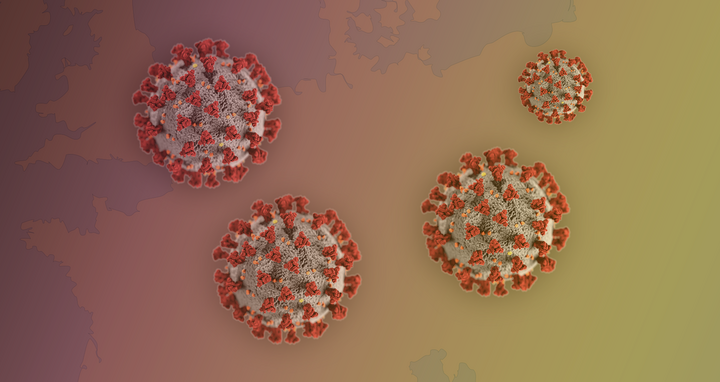State-by-state breakdown of COVID-19
The Robert Koch Institute (RKI) currently publishes daily situation reports that show the number of reported COVID-19 cases in Germany. Using this data, researchers at the Max Delbrück Center for Molecular Medicine in the Helmholtz Association (MDC) have now developed an online tool: Their map displays not only the total number of reported cases, but also the relative number of cases per 100,000 inhabitants for each German state, the daily new infections, deaths and current duplication rates. In addition, people can use a timeline to track the state-by-state development of the epidemic as well as numbers worldwide.
We searched the internet ourselves for similar representations and were surprised that - at the time - we could find nothing like this.
The map and timeline are available at https://covid19germany.mdc-berlin.de. The data is automatically retrieved and processed from the RKI website and the website of the European Centre for Disease Prevention and Control (ECDC) every day, with the exact time of data retrieval also noted.
“We searched the internet ourselves for similar representations and were surprised that - at the time - we could find nothing like this,” says Professor Matthias Selbach, head of the research group on Proteome Dynamics at the MDC. So, a scientist in his research group, Dr. Henrik Zauber, got to work developing the tool. “We created a similar online tool before to give other researchers interactive access to mass spectrometric data,” says Zauber. Based on this experience, he says, it was relatively easy to develop a tool that visually depicts the spread of the COVID-19 epidemic in Germany. The researchers intend to expand the visualization tool as and when more detailed data becomes available.
A public service
“Of course, we cannot take responsibility for the accuracy of the data – we merely process it,” says Selbach. “We see this tool as providing a public service.” He goes on to explain that, in principle, a distinction must be made between the number of reported cases and those actually infected at any given time. How reliable the number of reported cases is depends on many factors – for example, how many people are actually tested.
Matthias Selbach’s research group investigates the interaction of all proteins in the cell (the proteome). Cellular proteins are responsible, among other things, for cell metabolism, proliferation and survival programs, and for signaling pathways both inside and outside the cell. In the past, the team has applied this expertise to investigate which factors influence the reproduction of avian flu viruses in human cells. Selbach and his colleagues are now also planning collaborations with other researchers in order to better understand the molecular characteristics of the SARS-CoV-2 virus.
This article was updated on April 22, 2020.
Further information
Contact
Jana Schlütter
Editor, Communications Department
Max Delbrück Center for Molecular Medicine in the Helmholtz Association (MDC)
+49 (0)30 9406 2121
jana.schluetter@mdc-berlin.de or presse@mdc-berlin.de
- The Max Delbrück Center for Molecular Medicine (MDC)
-
The Max Delbrück Center for Molecular Medicine in the Helmholtz Association (MDC) is one of the world’s leading biomedical research institutions. Max Delbrück, a Berlin native, was a Nobel laureate and one of the founders of molecular biology. At the MDC’s locations in Berlin-Buch and Mitte, researchers from some 60 countries analyze the human system – investigating the biological foundations of life from its most elementary building blocks to systems-wide mechanisms. By understanding what regulates or disrupts the dynamic equilibrium in a cell, an organ, or the entire body, we can prevent diseases, diagnose them earlier, and stop their progression with tailored therapies. Patients should benefit as soon as possible from basic research discoveries. The MDC therefore supports spin-off creation and participates in collaborative networks. It works in close partnership with Charité – Universitätsmedizin Berlin in the jointly run Experimental and Clinical Research Center (ECRC), the Berlin Institute of Health (BIH) at Charité, and the German Center for Cardiovascular Research (DZHK). Founded in 1992, the MDC today employs 1,600 people and is funded 90 percent by the German federal government and 10 percent by the State of Berlin.




